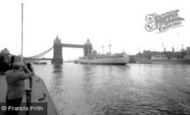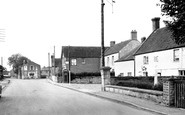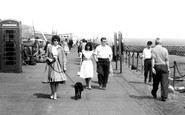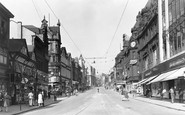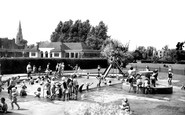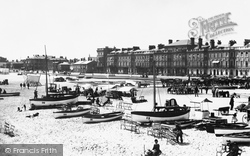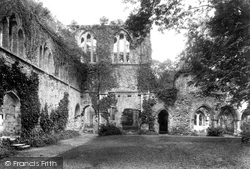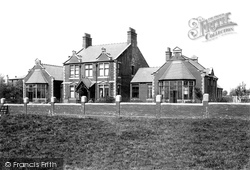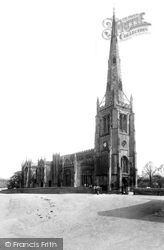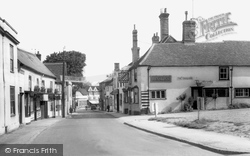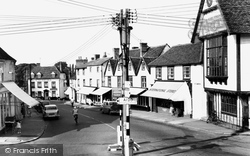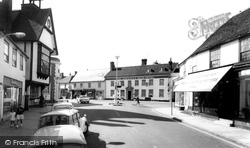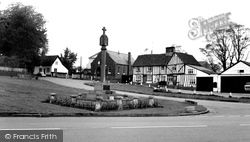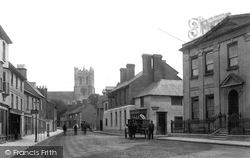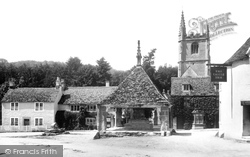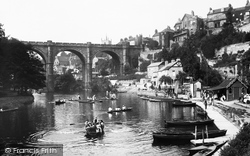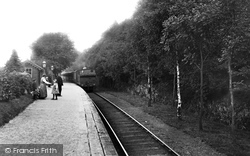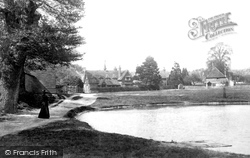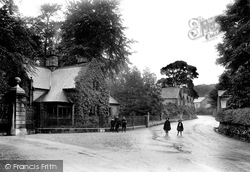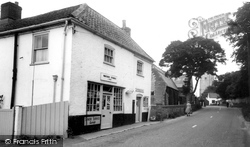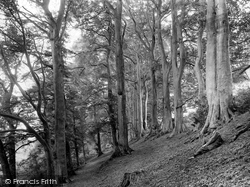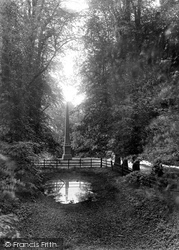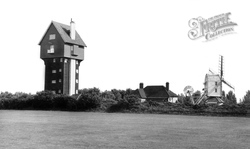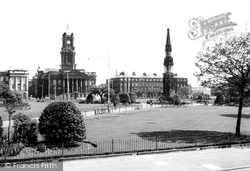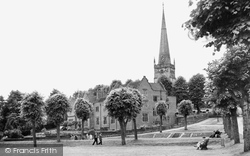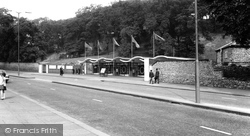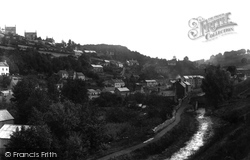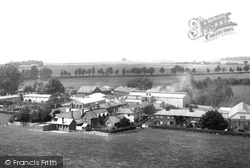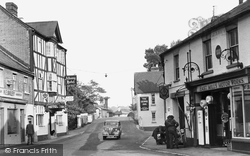Places
18 places found.
Those places high-lighted have photos. All locations may have maps, books and memories.
- Hythe, Kent
- Hythe, Hampshire
- Small Hythe, Kent
- Bablock Hythe, Oxfordshire
- Methwold Hythe, Norfolk
- Hythe, Somerset
- Hythe, Surrey
- Hythe End, Berkshire
- The Hythe, Essex
- Egham Hythe, Surrey
- West Hythe, Kent
- New Hythe, Kent
- Broad Street, Kent (near Hythe)
- Horn Street, Kent (near Hythe)
- Newbarn, Kent (near Hythe)
- Newington, Kent (near Hythe)
- Broad Street, Kent (near Hythe)
- Stone Hill, Kent (near Hythe)
Photos
360 photos found. Showing results 1,461 to 360.
Maps
101 maps found.
Books
10 books found. Showing results 1,753 to 10.
Memories
4,406 memories found. Showing results 731 to 740.
Will It Be Open?
My family moved from Bermondsey, where we shared my grandad's house, to Enfield, where Mum and Dad had managed to buy their own house (for £2,000) in 1960. It was some years before Dad could afford driving lessons and then a car. We ...Read more
A memory of London in 1966 by
The War Years And Later
I lived in Annesley Woodhouse from 1936-1950, when I was conscripted into the R.A.F. for national service. I attended Kirkby Woodhouse School. The Owston's owned the post office, and the Chancellor's, ...Read more
A memory of Annesley Woodhouse in 1930 by
''the Grapevine'' And Others!
My uncle, the late William John Wilcox, was the proprietor of the 'Grapevine' from the mid 1930s through to the early 1960s. I remember it as a truly old fashioned 'pub' complete with a 'games room' with darts, shove ...Read more
A memory of Meare in 1940 by
The Back House
I was born in Sedgefield and lived in North Bitchburn until I was 7 years old, me and my twin sister Elizabeth and my mam amd dad who worked at the pipe yard. We lived in no 1a Constantine Terrace, it was the back half of ...Read more
A memory of North Bitchburn by
I Think This Is Me And My Dog
I think this is a photo of me (note groovy sunglasses) walking my dog Zoe. I used to walk her along by the sea from Folkestone through Sandgate to Seabrook (in high heels!). I think it was about 1962-64 and I remember the coat, which was Kingfisher Blue.
A memory of Folkestone in 1963
The Hunt Family Cowbit
I have a silver brooch presented to "Bro" AQ. Hunt, Cowbit Branch by the National Union of Agricultural Workers, probably 1930s or earlier. I acquired it from a market stall in Bury St Edmunds many years ago and I would love ...Read more
A memory of Cowbit by
Earith Was In Huntingdonshire And Still Is
I was born in St Ives in 1939 but lived in Earith at what is now number 43. Next door was my Grandad's grocer's shop - Bert Russell. I moved to Peterborough in 1958 where I still live in Werrington ...Read more
A memory of Earith in 1940 by
Traffic Duty Dewsbury Road 1960
In 1960 I was a very young Police Constable at Dewsury Road Police Station. One of my duties was traffic duty at the bottom of Dewsbury Road. I think it was at the junction with Great Wilson Street and Meadow Road ...Read more
A memory of Leeds in 1960 by
The Pool
I was 10 years old and had cycled to the pool from my home in Hesters Way. Old bike, black with a basket on the front for my jam sandwiches and pop, towel and swimsuit in. With friends we would spend all day there, not really able to ...Read more
A memory of Cheltenham in 1958 by
Growing Up In Fordingbridge
I grew up in Fordingbridge between 1949 when I was born and 1967 when I left for University. I have so many memories that I couldn't possibly put them all down here, so I am just selecting a few good or striking ...Read more
A memory of Fordingbridge in 1960
Captions
4,899 captions found. Showing results 1,753 to 1,776.
There are refreshments booths, gingerbread sellers, seats to rent by the hour, and donkey rides.
Founded in 1239 by the monks of Beaulieu Abbey, Netley Abbey occupies a pretty setting amidst the trees.
The hospital was officially opened by the Mayor, Alderman Lee, in 1898, and named the Victoria Cottage Hospital in commemoration of the Queen's reign.
The project was probably part-financed by the Earls of Clare, who owned the manor. The elaborate north porch incorporates a chapel to the 14th-century peasant leader John Ball.
It would seem to be Dunmow`s Carnival week, judging by the banner strung from the Chequers. On the left, with the tubs of foliage, stands the oldest-established butcher`s in the town.
By the mid 1960s, Dunmow`s electric cables were being put underground: our photo shows what a good thing this was, aesthetically speaking.
The authorities removed the pump that stood here, only to have it re-installed by the townspeople. This happened more than once.
The school has been converted into a house by the architect Robert Wood.
The Saxon church was demolished by the Normans in 1095 and the present building, the longest parish church in England, built in its place.
The grandeur and size of Perpendicular architecture owes its inception to the wealth created by the wool trade.
Here we have a world-famous scene: the peaceful Nidd dominated by the 338ft-long railway viaduct. The original viaduct of 1847 collapsed after heavy rain, and was rebuilt three years later.
The locomotive comes tender first into Newby Bridge station, where it is awaited by the station-master.
The school seen in this photograph was designed by the renowned Surrey-based architect Henry Woodyer and opened in 1862.
Standing by the gatehouse to the 'Big House' - Holker Hall - these four local schoolchildren from Holker pose for the camera on a wet day.
This little store and village post office is well remembered for being run for many years by the Moody family. Although the shop area is a little smaller, it is still going today.
These lovely beeches were planted in the 18th century, possibly by the architect Sanderson Miller.
These lovely beeches were planted in the 18th century, possibly by the architect Sanderson Miller.
The water supply to Thorpeness was provided by piston pumps operated by the windmill.
The original clock tower was destroyed by fire in 1901, and replaced by the one we see here. The building now houses the Wirral Museum.
The Council House is now called St John's Court, and is occupied by the Somerset Redstone Trust. The Church of St John the Baptist is of Norman origin; its spire is visible for many miles around.
This wooded hill in the town centre is topped by the ruins of a Norman castle, whose builders might not be entirely surprised to find that the outer bailey now houses a zoo: after all, exotic animals were
It provided the corn and cloth mills of Chalford with the means of finding new markets for their wares until this mode of transport was superseded by the Gloucester to Swindon railway line.
The people of the Stone Age lived by the water.
The restored and widened medieval bridge by The George Inn gave the town its name.
Places (18)
Photos (360)
Memories (4406)
Books (10)
Maps (101)

